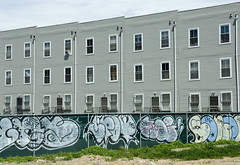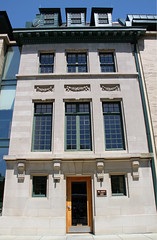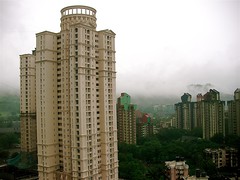Affordable housing continues to be an elusive dream, in terms of supply and implementation of affordable housing schemes. National Urban Housing and Habitat Policy (NUHHP) defines affordable house as, dwelling unit having super built-up area not less than 300 square feet for Economically Weaker Sections, 500 square feet for Lower Income Group and between 600 -1,200 square feet for Middle Income Group available to the end user at a price that permits home loans in monthly installments, not exceeding 30%-40% of a person’s monthly income.
The biggest impediment to construction of affordable housing projects is the non-availability of land. It is almost impossible to find land at appropriate locations at affordable prices, which accounts for more than 40% of the cost of the project. Confederation of Real Estate Developers Association of India (CREDAI) points out, that well-connected, accessible land with title and infrastructure needs to be provided on a regular basis, only then can developers provide affordable housing.
Land availability is a bigger problem, in Tier I cities. 23% of India’s urban population resides in 8 cities. If the housing shortage (of 26.53 million housing units) is to be addressed effectively, at least 3 million housing units must be added to the cities, every year. Instead, only 0.3 million housing units are being added in the existing cities. Urban land expansion is, therefore, the need of the hour. Most developers however continue to cater to the niche market that serves about 5-10% of the population.
Promoters are averse to handling more number of clients; in an affordable housing project, for instance, it’s a volume game. You need to provide a large number of housing units, as opposed to a luxury project where you deal with very few clients and big spaces.
Coupled with this is the problem of financing affordable homes. To offset this problem and deliver financial assistance to the poor so as to enable them to purchase their own homes, the central Government has instituted the Interest Subsidy Scheme for Housing the Urban Poor (ISHUP) scheme across the country.
Harsh Roongta, CEO, Apnapaisa.com, an online portal specializing in price comparison of loans, insurances and investment options, believes that the affordable housing industry has led to the growth of a microfinance industry as well, that funds people who may not have the means to buy a house otherwise.
Groups like Mahindra, MAS, Micro Housing Finance Corporation Ltd offer loans at 12-14% interest rates to those who do not have proofs of salary documentations. Tax concessions and a micro level road map for affordable housing will help plan such projects. A public- private partnership (PPP) is a solution too.
To facilitate affordable housing, the government has announced a few incentives and subsidies to developers who cater to the lower income segment, announcing a Transfer of Development Rights (TDR) of 30 sq m of floor area per slum dweller to the private builder who provides housing for the slum dwellers and the Development Regulations (DR) have been amended suitably. Also, additional FSI concessions of 50% over and above the normally permissible FSI for those who construct dwelling units of size 30 sq m and below are given. For those who construct dwelling units of size 50 sq m and below, an additional FSI concession of 30 % over and above the normally permissible FSI is given.
These policies and incentives will go a long way in promoting affordable housing. However, unless the bigger issues of land availability, planning and pricing are addressed, the market will not be able to serve the needs of those who really need an affordable house.








